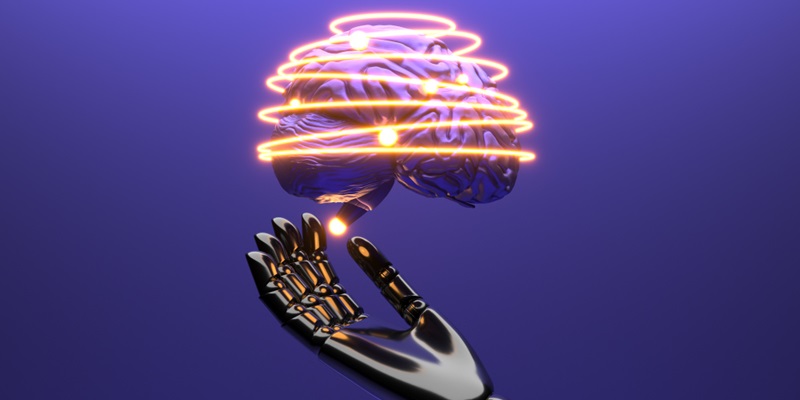In today’s ever-evolving job market, recruiters and hiring teams are constantly seeking innovative solutions to streamline their processes and find the right candidates quickly and efficiently. The rise of Artificial Intelligence (AI) in the field of recruiting and hiring has been revolutionary, with significant benefits being realized. This article delves into the growing adoption of AI in candidate assessments, highlighting its impact on making informed hiring decisions and improving the overall recruitment experience.
Survey Results on HR Teams Adopting AI
According to a recent survey conducted by Eightfold AI, an overwhelming 73% of HR teams are now embracing AI technology to enhance their recruitment and hiring practices. This staggering statistic showcases the widespread recognition of the potential of AI in revolutionizing candidate assessments and ensuring better hiring outcomes.
Definition of AI Candidate Assessment
An AI candidate assessment refers to an advanced solution that incorporates gamification, skills testing, and behavioral assessments to effectively measure candidate competency and personality traits. By leveraging AI algorithms, this assessment method enhances accuracy, efficiency, and objectivity in evaluating potential candidates’ suitability for a given role.
The Importance of Automatic Candidate Measurement
Automatically measuring candidates through AI-driven assessments holds immense value. Relying solely on traditional methods such as resume screening does not provide a comprehensive understanding of a candidate’s true capabilities. AI-driven assessment tools offer a more in-depth evaluation, resulting in better hiring decisions based on objective data rather than subjective factors.
Time and Efficiency Benefits of AI in Hiring Processes
Automating various stages of the hiring process through AI technologies provides significant time and efficiency benefits for hiring teams. Manual tasks such as resume screening, scheduling interviews, and coordinating assessments can be streamlined, allowing recruiters to focus on strategic decision-making. This automation also facilitates quicker turnaround times, reducing the overall time to hire.
Moving Beyond Resumes with AI
AI empowers hiring teams to move beyond traditional resumes and accurately assess candidates based on their skills, capabilities, and potential. By analyzing a candidate’s past experiences, performance in skills tests, and behavioral assessments, AI offers a more comprehensive evaluation, ensuring the right fit for the job.
Democratization of the Hiring Process with AI
One of the remarkable advantages of implementing AI in candidate assessments is its ability to democratize the hiring process. By removing unconscious bias and solely focusing on objective criteria, AI provides every candidate, regardless of their background, with a fair chance to showcase their skills and talents, thereby leading to a more inclusive recruitment process.
Disrupting the Pattern of Keyword Filters
The conventional method of using keyword filters to shortlist candidates often results in qualified individuals being overlooked. AI agents disrupt this pattern by offering technical screening, allowing candidates to showcase their skills and talents beyond the limitations of automated keyword filters. This allows recruiters to identify candidates with a genuine fit for the role beyond surface-level criteria.
Data-Driven Insights and Informed Decision-Making
AI technologies have a powerful ability to provide data-driven insights and recommendations, enabling hiring managers to make informed decisions. By analyzing large volumes of candidate data, AI algorithms can identify patterns, predict performance, and provide valuable recommendations, facilitating more effective decision-making throughout the hiring process.
The high-level benefits of AI for candidate assessments can be summarized as follows:
a. Automated Manual Hiring Tasks: AI streamlines manual tasks such as resume screening and interview scheduling, freeing up valuable time for recruiters.
b. Reduced Time to Hire: Automation in candidate assessments eliminates bottlenecks in the hiring process, accelerating the time to hire the right candidates.
c. Reduced Cost of Hiring: AI-driven assessments streamline the recruitment process, minimizing costs associated with manual screening and inefficient hiring decisions.
d. Improved Recruiter and Candidate Experience: AI technologies enhance the overall recruitment experience for both recruiters and candidates, improving engagement and satisfaction.
e. Reduced Unconscious Bias: By removing subjective factors, AI ensures a more fair and inclusive hiring process, promoting diversity and equal opportunities.
AI has undoubtedly transformed the landscape of candidate assessments, enabling recruiters to make informed decisions based on accurate data and objective evaluation. The growing adoption of AI in recruitment and hiring processes is revolutionizing the way organizations find and select top talent. As technology continues to advance, we can anticipate even more possibilities and benefits in the future, further redefining the hiring landscape and unlocking the full potential of AI in the recruitment domain.

